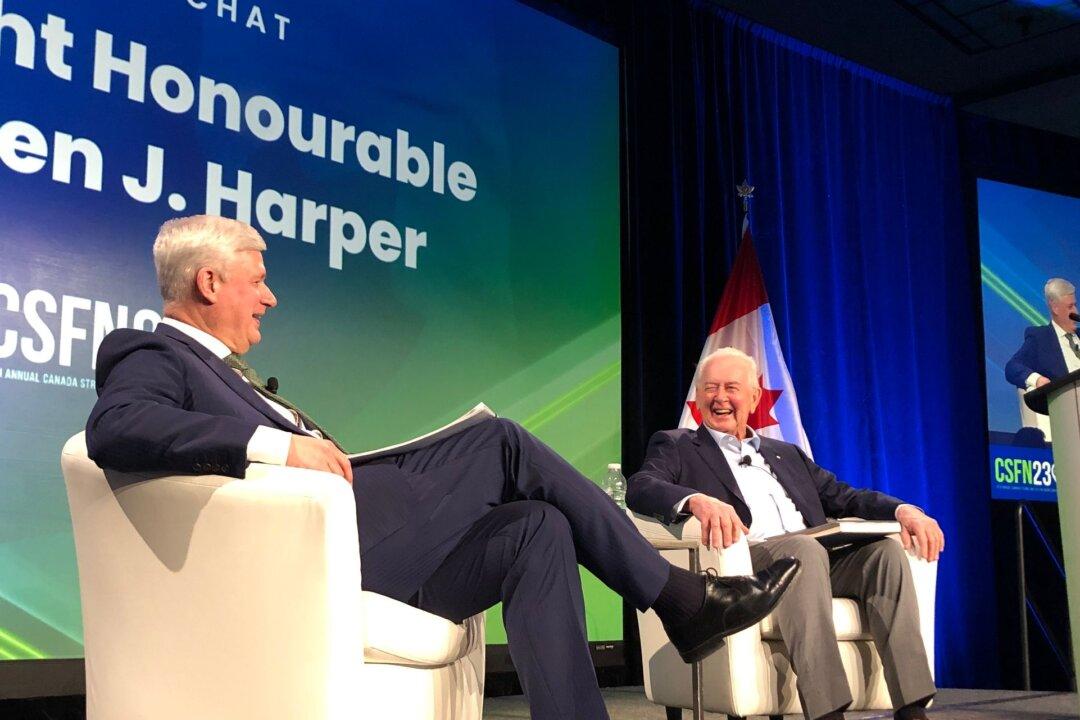OTTAWA—Former Prime Minister Stephen Harper says Canada needs a “conservative renaissance” to step out of the current economic situation, while defending populism in the face of accusations that it’s anti-democratic.
“That word ‘populist’ has taken on a number of imprecise and often negative meanings,” he told a crowd at the Canada Strong and Free Network conference in Ottawa on March 22.





